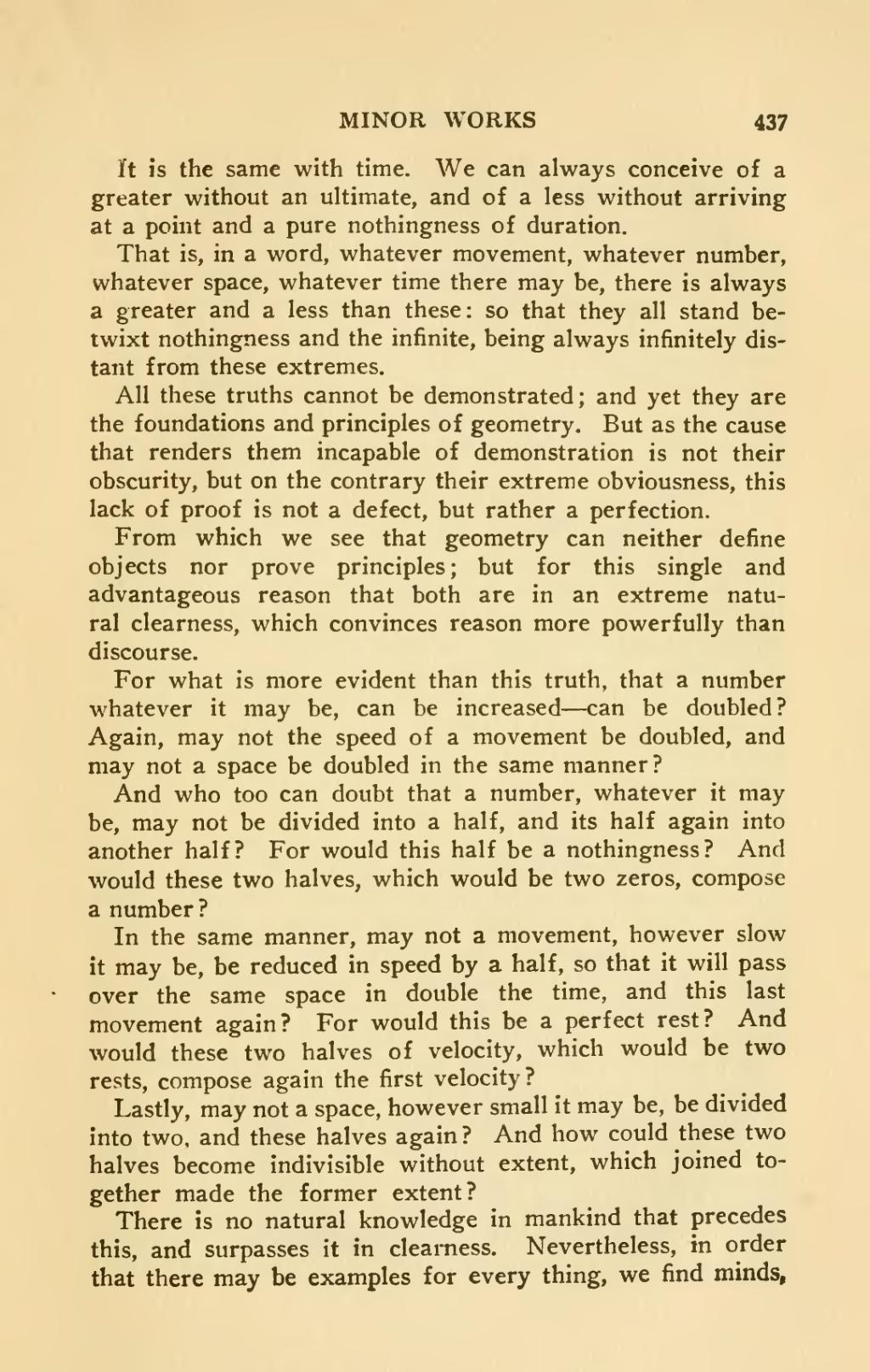It is the same with time. We can always conceive of a greater without an ultimate, and of a less without arriving at a point and a pure nothingness of duration.
That is, in a word, whatever movement, whatever number, whatever space, whatever time there may be, there is always a greater and a less than these: so that they all stand betwixt nothingness and the infinite, being always infinitely distant from these extremes.
All these truths cannot be demonstrated; and yet they are the foundations and principles of geometry. But as the cause that renders them incapable of demonstration is not their obscurity, but on the contrary their extreme obviousness, this lack of proof is not a defect, but rather a perfection.
From which we see that geometry can neither define objects nor prove principles; but for this single and advantageous reason that both are in an extreme natural clearness, which convinces reason more powerfully than discourse.
For what is more evident than this truth, that a number whatever it may be, can be increased—can be doubled? Again, may not the speed of a movement be doubled, and may not a space be doubled in the same manner?
And who too can doubt that a number, whatever it may be, may not be divided into a half, and its half again into another half? For would this half be a nothingness? And would these two halves, which would be two zeros, compose a number?
In the same manner, may not a movement, however slow it may be, be reduced in speed by a half, so that it will pass over the same space in double the time, and this last movement again? For would this be a perfect rest? And would these two halves of velocity, which would be two rests, compose again the first velocity?
Lastly, may not a space, however small it may be, be divided into two, and these halves again? And how could these two halves become indivisible without extent, which joined together made the former extent?
There is no natural knowledge in mankind that precedes this, and surpasses it in clearness. Nevertheless, in order that there may be examples for every thing, we find minds,
